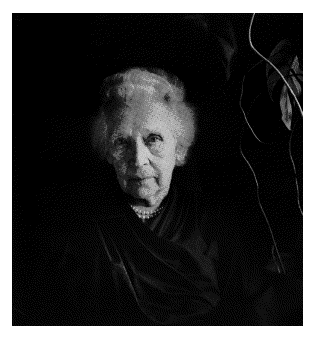--- The Stranger

§ § §
People mouth the words, the usual words, about how good and generous and wise and kind and alive she was, how she taught classes on the stock market right up to the very last; barely able to move, or hear, and there she was, hunched over, going on about gross and net, price-to-
Then they open their mouths in song, as in Handel, The Messiah. It's always The Messiah. Why not the Beatles, for God's sakes. Why not Taxman? She loathed the IRS, spent her whole damn life trying to get out from under taxes.
Then my brother launches into a talk about her life and good works. He asked me if I would write the speech, and give it. Said he wanted everyone to be involved --- this wasn't just his show. After all, I'm the writer in the family.
So I got charged up, wrote a fine funny sweet non-sentimental word-shot about Mumsie. Let me tell you about her and stoplights and politicians, I said. The only time in her life that she used what she called "gutter language" was when she was talking about the goddamn stoplights and the goddamn politicians. She didn't hate them. She loathed them.
But no, my brother decides to do the whole show after all, takes my speech and trashes it --- all ten pages of it, except for a couple of lines --- and comes up with a panegyric of his own, speaking of her as if she were a grown woman. And yet we knew she had all the reasonableness of a 13-year-old juvenile, the one you want to shoot up with Ritalin, hoping she would stop trashing everything. That was the point of my speech: what an outrageous, sulky, joyful child she was. Hyperactive, childish, funny. And he talks as if she were a paragon of dry wisdom and maturity. I think of Mum all packed up in that dark shipping case, ready to go. I wonder what they'll be writing on her tombstone? How about, I'm hard as nails. That was what she said, with a sigh, when some special stupid burden came down the line, threatening to squash her.
Maybe they should use her favorite quote from Oscar Wilde: Wilde is dying, and his friends bring him to the Hotel Metropol, in Paris. He looks around the gussied-up room, and says, I'm dying beyond my means. That would be rich.
No, best,
It was a specialty of hers --- always said whenever we kids did something she didn't like.
"Suppose they've gone and put someone else in there?" I think. That very large, very oily, very professional sad-eyed man from Hardy Morticians in his starched white shirt and black suit: he's quite capable of it. He knew what a heller Mum was. Maybe he slipped a spare pickled wino into the box --- just for protection, just in case she were to wake up, jerk back the cover, rise up, say, "I'm not going to put up with this nonsense." (She didn't much care for funerals anyway).
My psychiatrist is going to have a field day with this one. He'll write in his notebook, "Patient imagines that someone else has been substituted for his mother in coffin, thinks that she is going to rise up, take leave of her own funeral."
They couldn't slip just any old leather-
I just hope whoever they put in here isn't as banged up as poor old Mum. Ninety-six years puts a hell of a lot of wear-
She loathed weakness for the simple reason that it prevented one from seizing life's opportunities. In her case, opportunity consisted of being born with a hundred thousand megawatts of pure drive and determination, and a father who pegged her early along as one of the Divine: a daddy who let her drive a car when she was twelve; a daddy who gave her a twenty-two room mansion on Riverside Avenue for a wedding present; a daddy who adored her beyond all reason.
Lorenzo Arthur Wilson, the fertilizer magnate of North Florida, known lovingly as Daddy. In 1910 he bought home a Stanley Steamer, the first car in Jacksonville. His beloved twelve- I can see her now, in her white cotton dress and silk cross-stitched blouse, a red sash holding down her unruly hair, sitting straight-backed in the drivers' seat, pushing the spark advance, pulling back on the choke, stomping white pumps on the accelerator, then the brakes, dashing between the horse-drawn carts, driving with supreme surety, going exactly where she wanted, and damn the torpedoes.
I can see Don Lorenzo in his linen suit sitting beside her , hanging onto his straw boater. "Meriel," he says, the word turning to "Meriyel" in his soft, north-Florida accent: "Meriel --- don't go so fast, now. You almost hit that boy on the bike." And she says, "Pooh, Daddy." She always said "Pooh" when we complained about the way she drove, which was awful. "Pooh, Daddy," she says, "don't you think I know what I'm doing? If they don't get out of the way, it'll be their own fault." And she sniffs, giving out, early on, one of the great philosophical stones of her life. "If they don't get out of the way, it's their own damn fault." And Don Lorenzo concentrates stoically on the dusty horse trail and road apples before them, bemused by the light of his life, to say nothing more, ever, about her atrocious driving.

"Daddy said never invest in bonds. He said you should only invest in good stocks." "Daddy said that Florida land would always be worth it. But you have to be careful who you buy it from." "Daddy said to always mark the level on the liquor bottles. Because of the servants." Daddy said never to be afraid.
And as far as I know, she never bought bonds, always invested in good land, marked all the liquor bottles, and never showed fear. She showed her anger, she showed her class; but fear, that great leveler: never.
Never be afraid, said Daddy. And, on the last day, in December, 1995, as she lay blind and crippled and almost completely deaf, her heart racing on in anticipation of shutting down forever, her blood pressure wildly out of control --- they say that when they asked her how she was doing, a mere twelve hours before she was to draw her ninety-six years of life to a close, when they said, "Meriel, how are you?" she, barely able to speak above a whisper, managed to get out the words:
"Fine," she said. "I'm doing fine."